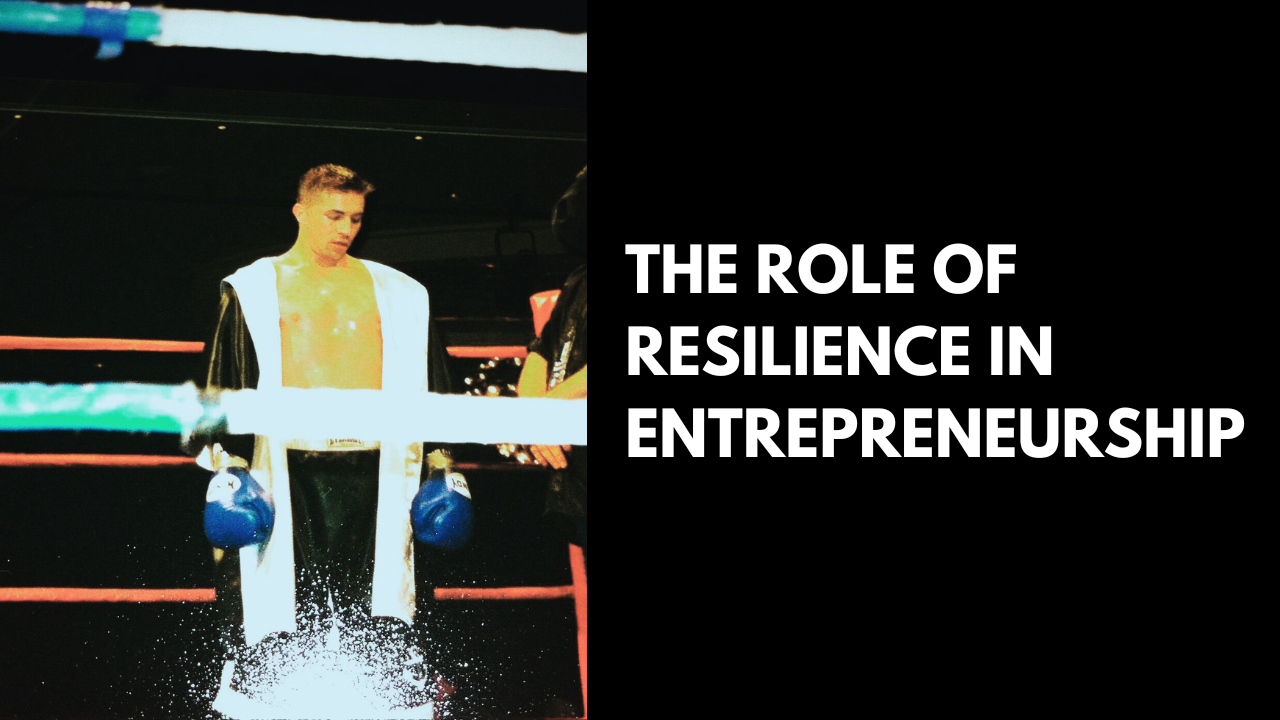Resilience is an essential trait for entrepreneurs. The journey of building a business is fraught with challenges, setbacks, and failures. How entrepreneurs respond to these difficulties often determines their long-term success. In this blog, we will explore the role of resilience in entrepreneurship, the importance of bouncing back from failure, and strategies for building and maintaining resilience in the face of adversity.
Understanding Resilience in Entrepreneurship

1. What is Resilience? Resilience is the ability to recover quickly from difficulties and adapt to adversity. It involves maintaining a positive outlook, staying focused on goals, and persisting in the face of challenges. For entrepreneurs, resilience means being able to navigate the ups and downs of business with determination and optimism.
2. The Importance of Resilience: Resilience is crucial for entrepreneurs because it enables them to:
- Overcome setbacks and failures without losing motivation.
- Adapt to changing circumstances and pivot business strategies.
- Maintain mental and emotional well-being amidst stress and uncertainty.
- Inspire confidence and trust in employees, investors, and stakeholders.
The Role of Failure in Entrepreneurship

1. Learning from Failure: Failure is an inevitable part of the entrepreneurial journey. However, it should be viewed as a learning opportunity rather than a defeat. Each failure provides valuable insights into what went wrong and how to improve. By analyzing failures, entrepreneurs can identify weaknesses, refine their strategies, and make better decisions in the future.
2. Building Resilience Through Failure: Experiencing failure can strengthen resilience. Overcoming challenges builds confidence and reinforces the belief that setbacks can be managed and overcome. Entrepreneurs who have faced and bounced back from failure are often more resilient and better equipped to handle future obstacles.
3. Famous Failures: Many successful entrepreneurs have experienced significant failures before achieving success. For example:
- Steve Jobs was ousted from Apple, the company he co-founded, only to return and lead it to unprecedented success.
- J.K. Rowling faced numerous rejections from publishers before the Harry Potter series became a global phenomenon.
- Elon Musk encountered several failures with SpaceX and Tesla but persisted to build highly successful companies.
Strategies for Building Resilience
1. Develop a Growth Mindset: A growth mindset is the belief that abilities and intelligence can be developed through effort and learning. Entrepreneurs with a growth mindset view failures as opportunities for growth and are more resilient in the face of challenges. To develop a growth mindset:
- Embrace challenges and persist in the face of setbacks.
- Learn from criticism and feedback.
- Focus on the process of learning and improvement rather than just outcomes.
2. Set Realistic Goals: Setting realistic and achievable goals helps maintain motivation and prevent burnout. Break down larger goals into smaller, manageable tasks. Celebrate small wins along the way to stay motivated and build momentum.
3. Build a Support Network: Having a strong support network is vital for resilience. Surround yourself with mentors, peers, and advisors who can provide guidance, encouragement, and perspective. Share your challenges and successes with your network to gain insights and support.
4. Practice Self-Care: Entrepreneurship can be stressful and demanding. Practicing self-care is essential for maintaining mental and emotional well-being. This includes:
- Regular exercise and a healthy diet.
- Adequate sleep and rest.
- Mindfulness practices such as meditation or yoga.
- Taking time off to recharge and relax.
5. Stay Adaptable: The ability to adapt to changing circumstances is a key aspect of resilience. Be open to new ideas and approaches. If a particular strategy isn’t working, be willing to pivot and try something different. Flexibility and adaptability can help navigate uncertainties and seize new opportunities.
6. Maintain a Positive Outlook: Optimism and a positive outlook are important for resilience. Focus on the positives and what can be learned from each experience. Practice gratitude and acknowledge the progress you have made. A positive attitude can help overcome setbacks and keep you moving forward.
Case Studies and Success Stories

1. Airbnb: Airbnb’s founders, Brian Chesky, Joe Gebbia, and Nathan Blecharczyk, faced numerous challenges in the early days of their business. From initial rejections by investors to struggling to find users, they persisted through setbacks. Their resilience paid off as they continued to refine their platform, eventually turning Airbnb into a global hospitality giant.
2. Spanx: Sara Blakely, the founder of Spanx, faced multiple rejections from manufacturers and investors when she first started her company. However, her resilience and determination kept her going. She continued to refine her product and pitch her idea until she finally found a manufacturer willing to take a chance. Today, Spanx is a leading brand in the shapewear industry.
3. SpaceX: Elon Musk’s SpaceX experienced several high-profile rocket failures before achieving success. The early failures were costly and could have discouraged the team. However, Musk’s resilience and commitment to learning from each failure led to eventual breakthroughs. SpaceX has now achieved numerous milestones in space exploration and commercial spaceflight.
Conclusion
Resilience is a fundamental trait for entrepreneurs. It enables them to navigate the inevitable challenges and setbacks of building a business. By developing a growth mindset, setting realistic goals, building a support network, practicing self-care, staying adaptable, and maintaining a positive outlook, entrepreneurs can build and strengthen their resilience.
Failure, rather than being a deterrent, should be viewed as an integral part of the entrepreneurial journey. Each failure provides valuable lessons that contribute to growth and success. By learning from failures and persevering through adversity, entrepreneurs can achieve their goals and create impactful, successful businesses.
For aspiring entrepreneurs, embracing resilience and viewing setbacks as opportunities for growth can make all the difference in achieving long-term success. Remember that the path to entrepreneurship is rarely smooth, but with resilience, determination, and a positive mindset, you can overcome obstacles and turn your vision into reality.

